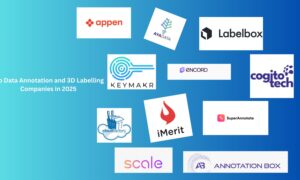In the dynamic realm of technology, the significance of artificial intelligence (AI) training becomes increasingly apparent as it stands as the cornerstone of innovation. As we traverse this intricate landscape, it becomes clear that the potential of AI is intricately linked to the quality of its training. AI training serves as the linchpin of technological advancements, empowering machines to learn, adapt, and evolve. This article takes a closer look at the challenges faced in maintaining this quality, specifically in the arena of data annotation, where precision is key.
Understanding Data Annotation Challenges
Data annotation, the process of adding labels or metadata to raw data, is foundational to AI development. It enables machines to recognize patterns, classify data, and make informed decisions. However, with great power comes great responsibility, and accuracy in this annotation process is paramount.
The challenges emerge when human error seeps into the manual labeling process. Inconsistencies can arise, jeopardizing the integrity of the labeled data. These challenges, if left unaddressed, have the potential to undermine the very foundation upon which AI systems operate.
Importance of Quality Control
Imagine a scenario where an AI system trained on flawed data starts making predictions. The consequences could be dire, affecting decisions in healthcare, finance, or other critical areas. This is where quality control steps in as the guardian of accurate AI predictions.
Ensuring precision in data annotation is not just a process; it’s a commitment to the reliability of AI systems. It’s the meticulous attention to detail that safeguards against inaccuracies and ensures that the knowledge AI gains from annotated examples is trustworthy.
Overcoming Challenges
Addressing the challenges of data annotation requires a strategic approach. Training data annotation professionals and implementing robust quality assurance measures are paramount. By doing so, businesses can mitigate the risk of human error and ensure the consistency of the labeling process.
Furthermore, recognizing the importance of diverse and representative data annotation is crucial. The labeling process should mirror the diversity of the real world to create AI systems that can adapt to a myriad of scenarios.
The Nuances of Quality Control
Quality control in data annotation is a multifaceted endeavor that extends beyond mere accuracy. It involves constant monitoring and evaluation to ensure that the annotated data aligns with the evolving landscape of AI requirements. As the demands on AI systems change, so must the standards for quality control.
In the realm of AI, precision is not a static concept. It’s a dynamic pursuit that necessitates continuous improvement and adaptation. Therefore, businesses must establish frameworks for ongoing training and development for data annotation professionals to stay ahead of the curve.
Mitigating Bias in AI
The ethical dimension of AI is a topic that cannot be ignored. Bias in AI decision-making processes can emerge if data annotation is not representative. For instance, if an AI system is trained solely on data from a specific demographic, it may struggle to perform accurately for individuals from other backgrounds.
To reduce the risk of bias, data annotation must be diverse and representative. This is particularly crucial in critical areas like healthcare, finance, or any domain where fairness and accuracy are paramount.
Choosing the Right Data Annotation Services
Selecting reliable partners for data annotation is the final piece of the puzzle. The right service providers bring expertise, consistency, and attention to detail to the table. They understand the specific needs of industries and have experience in handling data annotation projects at scale.
By choosing the right data annotation services, businesses pave the way for more accurate and effective AI models. These models, armed with precise and diverse annotation, hold the potential to revolutionize industries and ensure that AI’s impact is a force for good.
Expanding Horizons: The Future of Data Annotation and AI Training
As we delve deeper into the challenges of AI data annotation, it’s essential to cast our gaze toward the future. The journey doesn’t end with overcoming present obstacles; it extends into the realms of anticipation and innovation.
The future promises an evolution in the methodologies of data annotation and AI training. Automation will likely play a more significant role, streamlining processes and enhancing efficiency. Improved data management techniques will emerge, ensuring that the data fed into AI systems is not just labeled accurately but also managed effectively.
Closing
The journey through the challenges of AI data annotation is a necessary pilgrimage toward technological excellence. Overcoming these challenges ensures that AI systems are not just intelligent but reliable and fair. As we navigate these challenges, the benefits of data annotation become clear—fostering accuracy, reliability, and ethical AI applications. As we stand at the crossroads of technological evolution, it’s imperative to recognize that the challenges we conquer today shape the future of AI.



































